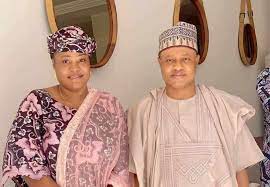
Nigeria has made significant strides in expanding electricity access, with the federal government reporting that around 150 million citizens now have some form of connection to power. However, the real challenge lies not just in access but in the reliability, stability, and affordability of that access issues that continue to define the country’s electricity sector.
Minister of Power, Adedayo Adelabu, disclosed the figures during the 2025 Ministerial Sectoral Update Conference held in Abuja. He explained that the progress is closely linked to Nigeria’s active participation in the “Mission 300” initiative a major joint project between the World Bank and the African Development Bank (AfDB) aimed at connecting 300 million Africans to electricity by the year 2030. According to him, Nigeria is on track to account for a quarter of that target, which translates to around 75 million people. The country’s energy compact was presented and accepted under the initiative, signaling international support for its power sector ambitions.
Despite this progress, Adelabu was quick to underscore that the core issue is not merely how many people are connected, but whether that connection translates to steady and affordable electricity. Out of Nigeria’s estimated population of over 240 million, roughly 80 million people still lack access to adequate electricity, while many of those with access experience unreliable or inconsistent supply. This makes reliability not just coverage the defining challenge for Nigeria’s power strategy going forward.
The minister stressed the need to strike a balance between expanding access in rural communities through off-grid and renewable solutions, and strengthening the national grid, especially in urban and industrial centers. He argued that overreliance on solar and mini-grid options, while useful, could leave major cities and industries behind if the national grid remains weak. In his view, the grid must be upgraded in parallel with rural electrification, to ensure that those already connected receive dependable power and that businesses are not forced to exit the grid and invest in costly self-generation.
Nigeria has also seen a notable increase in electricity generation capacity over the past 18 months. Since the beginning of President Tinubu’s administration, national generation has reportedly grown by 1,700 megawatts, reaching 6,003 megawatts a pace of growth rarely seen in previous decades. Adelabu contrasted this with historical trends, noting that it took Nigeria over four decades to add just 2,000 megawatts to its energy output. He expressed optimism that if the current momentum is sustained, the country could achieve up to 8,000 megawatts of generation capacity by the end of the administration’s first term in 2027. He also revealed that the Kaduna Power Plant is expected to come onstream before the end of 2025, adding further capacity to the grid.
On the issue of metering, which remains a source of frustration for many Nigerians due to estimated billing and tariff disputes, the minister assured that the metering gap will soon be closed, though he did not provide a specific timeline.
While generation and access are improving, the sector still faces serious financial and structural constraints. Recent reforms in electricity tariffs, particularly for customers in the highest supply band (Band A), have stirred public debate. In April 2024, the Nigerian Electricity Regulatory Commission approved a steep increase in tariffs for this category from ₦68 to ₦225 per kilowatt-hour affecting nearly two million consumers. The government justified the move by pointing to the ballooning cost of energy subsidies, which were projected to exceed ₦2.9 trillion for 2024. Even with the increase, ₦2.8 trillion remains budgeted for subsidies, though the new rates are expected to reduce the burden by over ₦1 trillion.
Critics, however, argue that the timing of the tariff hike has deepened the economic strain on households and businesses. Groups like the Institute of Chartered Accountants of Nigeria (ICAN) and the Abuja Chamber of Commerce and Industry have warned that the cost increase is likely to squeeze small and medium enterprises, many of which already operate on razor-thin margins. With inflation still high and purchasing power low, there are concerns that the reform may worsen inequality in energy access.
Perhaps the most pressing structural issue is the fragility of Nigeria’s national grid. Despite gains in generation capacity, the country experienced at least a dozen nationwide grid collapses in 2024 alone, resulting in widespread blackouts across cities like Abuja, Lagos, and Kano. The Transmission Company of Nigeria attributes these failures to ageing infrastructure, frequent vandalism, and irregular gas supply to thermal plants all of which hamper the grid’s ability to transmit the power being produced.
Adelabu has suggested a bold solution: regionalising the national grid to isolate failures and reduce the likelihood of total blackouts. By segmenting the grid into zones, he argued, faults in one part of the country could be contained without plunging the entire nation into darkness.
In addition to structural weaknesses, Nigeria’s dependence on imported power equipment continues to place strain on its foreign exchange reserves. The minister called for increased investment in local manufacturing and technology to reduce the sector’s reliance on foreign parts and systems.
The unreliability of the national grid has pushed many Nigerian businesses and households to invest in alternative power solutions, particularly diesel and petrol generators. Combined, these off-grid sources now produce an estimated 40,000 megawatts far more than the power currently distributed through the national grid. Some states are beginning to chart their own paths toward energy independence, experimenting with independent power markets and mini-grids that bypass the federal infrastructure altogether.
Adelabu concluded with a call to restore trust in the national system. Until Nigeria’s grid becomes truly dependable, he acknowledged, consumers will continue to seek alternatives. For now, the task ahead is clear: fix the fundamentals, modernize the infrastructure, and ensure that every megawatt generated can reliably reach the people and industries that need it most.





